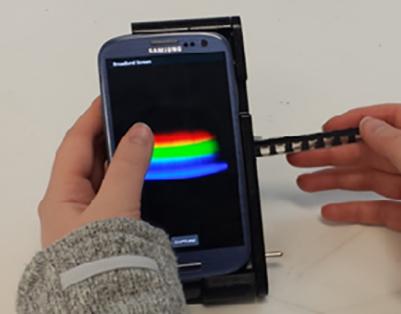This New Device Turns Your Smartphone Into a Medical Lab
University of Illinois at Urbana-Champaign have developed a device that connects to smartphones and serves as a mobile lab. The inexpensive and versatile device will bring medical access to areas that cannot support a traditional lab.
“Swiss Army” Tech
The advent of the smart phone was a key development in the technological evolution of our species. What used to be relegated to entire rooms and even buildings can now fit snugly in our pockets giving each person the potential to access massive amounts of information from the palm of their hand. This evolution has not reached its apex, however, as continuing innovations are allowing for more and more capabilities for the technology. With the help of some researchers at the University of Illinois at Urbana-Champaign, we can now even replace medical labs with technology optimized by a smart phone.
The relatively inexpensive system known as the spectral transmission-reflectance-intensity (TRI)-Analyzer costs only $550. The device uses light and spectral analyses to do many of the most common laboratory tests. “Our TRI Analyzer is like the Swiss Army knife of biosensing,” says Professor Brian Cunningham, the Donald Biggar Willett Professor of Engineering and director of the Micro + Nanotechnology Lab at Illinois.
Image credit: Department of Bioengineering, University of Illinois at Urbana-Champaign
Image credit: Department of Bioengineering, the University of Illinois at Urbana-Champaign
Mobilizing Lab Tech
Given the device’s capabilities, it is able to adapt to perform a wide variety of tests without the need for a dedicated laboratory. Any test that utilizes a liquid that changes color or generates a light output (think fluorescent dyes) can be run on this device hooked up to a smartphone. “Our Analyzer can scan many tests in a sequence by swiping the cartridge past the readout head, in a similar manner to the way magnetic strip credit cards are swiped,” said Kenny Long, an MD/Ph.D. student and lead author of the research study.
Technology like this device will go a long way in bringing much needed medical access to areas that need it most. Coupling the inexpensive cost with mobility make this device an invaluable tool in serving the people living in underdeveloped regions all over the world. With the help of science and technology, we are taking the lab out of the hospital and, quite literally, putting it into the hands of people who now have the power to save and change lives.
